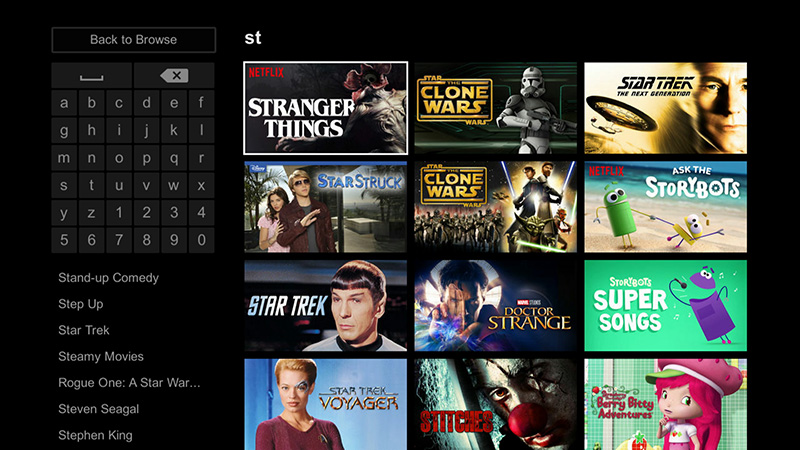Latest news about Bitcoin and all cryptocurrencies. Your daily crypto news habit.

Marketplaces are currently among the most popular implementations of eCommerce solutions. Instead of creating from scratch and filling your own web store with all required content, marketplace owners focus most of their effort at the search engine optimization and acquiring the image that would efficiently attract both vendors and customers.
How to achieve the world-renowned marketplaces’ popularity?
The most prominent marketplaces globally are Amazon, eBay, Alibaba, and Rakuten. Providing the transparent trading terms for both sides of the bargain, these resources operate billions (!) of dollars on the yearly basis. Many startup owners try to open their own business in this niche, being inspired by the competitive success of such a level. However, in order to be competitive in the niche, it’s crucial to come up with the unique schtick (feature), i.e. something that would make your resource stand out among other solutions with similar functionality.
Further on in the article, we’ll highlight the most ‘buzzy’ trends in marketplace development in the eCommerce of 2018.
Top-6 freshest marketplace development tendencies
The top-6 current marketplace development trends presented below can serve as a great inspiration and tip for your own business establishment attempts. We hope, following these tendencies will ultimately help you in your startup efforts of online marketplace development:
- Combination of online and offline services. It’s highly unlikely that offline stores will completely die out in the foreseeable future, despite even the predictions by experts from Netherland — here’s their statistics. A category of people utterly satisfied with physical purchases that vastly prefers offline shopping to the online experience will stay in place — you know, those who like to touch, try on, and ask sales experts about a certain product. Alternatively, an online store is an ultimate convenience for shoppers which is also, usually, cheaper. Fortunately, you can go as far as cover everything: for instance, allow customers to try on your garments when they are delivered and ship back the unfitting items (if you sell clothes or accessories). It can also be a separate dedicated place with a dressing room where a customer can try everything on and either buy or decline the purchase.
- Mobile design. The number of unique smartphone owners doesn’t stop increasing with each year. Most possibly, along with the course of the technological advancement of mobile devices, they will be able to completely stamp out regular PCs from the market. This means that commercial web resources owners should direct their effort at the creation of the adaptive/responsive/mobile-first design in order to keep the UX quality on the sufficient level even when a user launches the site on a smartphone. Moreover, mobile-optimized websites are best ranked in search engines (e.g. if you employ the Google AMP technology during the development of a website, it’ll be prioritized in the search results by default). So if your marketplace still doesn’t have a dedicated mobile version, now’s the high time to start thinking about it.
- Internet of Things. As we’ve already mentioned, despite the fact that new online stores appear every day like mushrooms, offline sales outlets will stay relevant for an indefinite period of time. So why not enhance the quality of service to the extent where any competitor of yours that works exclusively online gets left far behind by your solution? You can do this, for example, with the help of advanced, specialized software based on the Internet of Things concept. In particular, deploying IoT- based software solutions in your company, you can optimize processes of product selection, customer communication, banking cards processing, orders systematization, production accounting, supply chain planning, etc. Thus, you can increase the level of sales, improve sales turnover processes, and decrease expenses with minimal financial investments and without the necessity to provide new job openings. The successful cases of the IoT employment in the digital commerce field include the technologically perfected Amazon marketplace. Literally everything’s automated there — from drone-powered order shipments to the ordering process itself (e.g. via the Amazon Dash Button developed especially to make purchasing of groceries and other domestic products utterly accessible).
- Augmented reality. Augmented reality (AR) is one of the major mobile software development trends of the last few years. Initially, being technologically ‘young’, the concept was mostly applied in video game apps. Currently, however, it’s used as a foundation for business software as well. For instance, IKEA presented a virtual catalog to customers, items from which can be projected onto any interior or exterior. Thus, customers can see the way a certain piece of furniture fits into their place with the help of their smartphone cameras. This feature also boosts the customers’ decisiveness to purchase a certain good when it comes to online shopping.
- Artificial intelligence-powered search. Artificial intelligence has covered a whole lot of software development niches up to date. The two most common ways to use AI in the development of marketplaces is the intelligent voice search and deeply analyzed search. The voice search is mostly a ‘cool’ feature to boast about in the context of what advanced features you provide. The deep-analysis search, however, might as well directly influence your sales. For instance, Kim Kardashian has launched an app that helps to find clothes and accessories identical to those captured in a photo. It works like Shazam, looking for similar wardrobe items instead of music. Similarly, Netflix had made another billion dollars on the media content distribution by offering customers new features very similar in nature to those they’d already watched before. Keep in mind, however, that the introduction of such searching powers calls for serious rearrangements in the SEO, but that’s a completely different story.
Narrow focus. Instead of building multipurpose hypermarkets, many business owners focus at a particular niche. This allows for defining target audience more precisely, narrowing down the circle of competitors, and motivating customers to make purchases (categorization makes everything much simpler for users).
Conclusion
To summarize everything up, 2018 has introduced a bunch of progressive, promising pieces of tech into the marketplace development niche. This means that inspired by one of the mentioned marketplace trends, you can try and make your resource a search results positions leader. If you are seriously interested in the creation of your own commercial startup, make sure to work only with competent, expert developers. We can help you! Let’s cooperate and make your concept a reality!
The Latest Trends in Marketplace Development was originally published in Hacker Noon on Medium, where people are continuing the conversation by highlighting and responding to this story.
Disclaimer
The views and opinions expressed in this article are solely those of the authors and do not reflect the views of Bitcoin Insider. Every investment and trading move involves risk - this is especially true for cryptocurrencies given their volatility. We strongly advise our readers to conduct their own research when making a decision.



